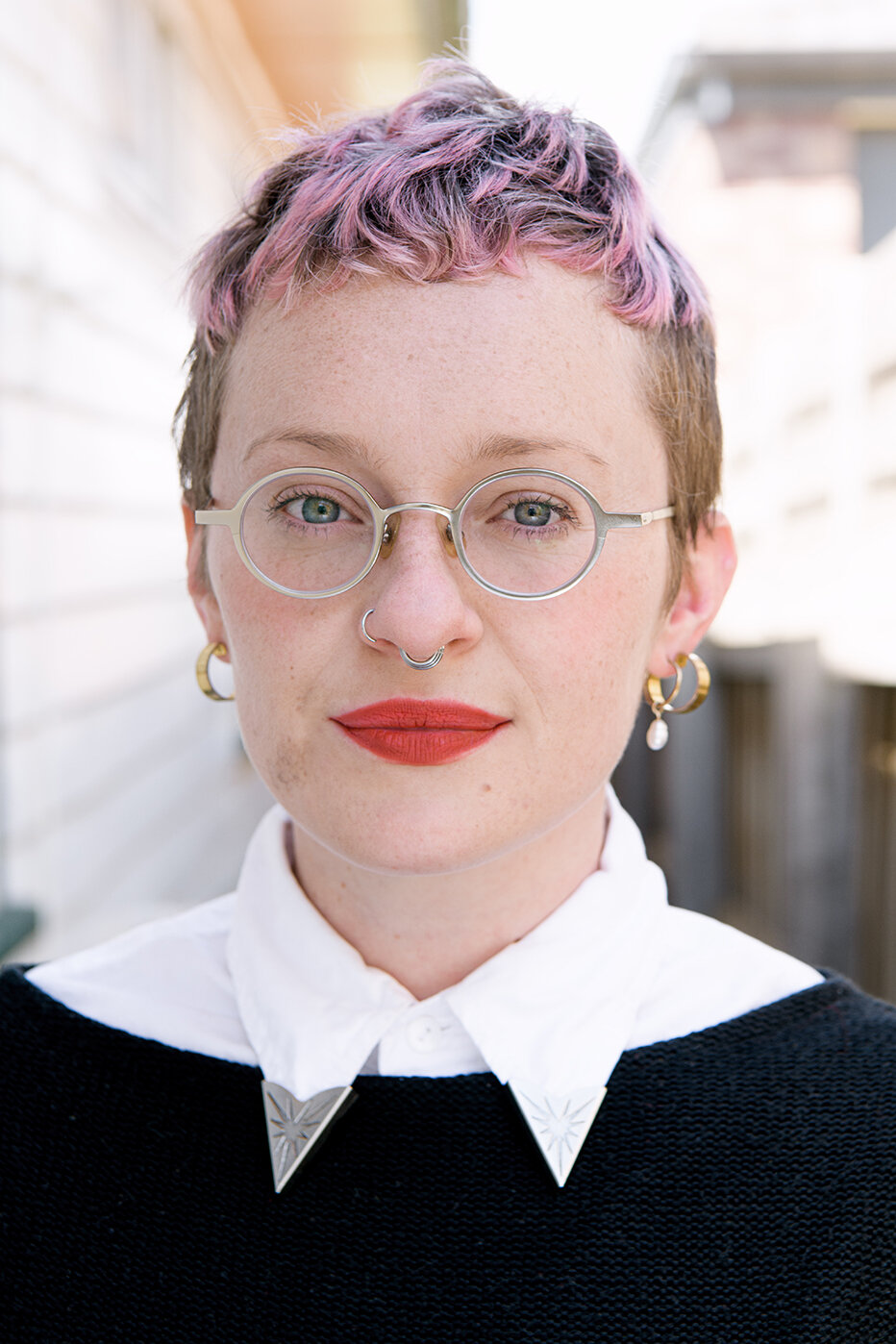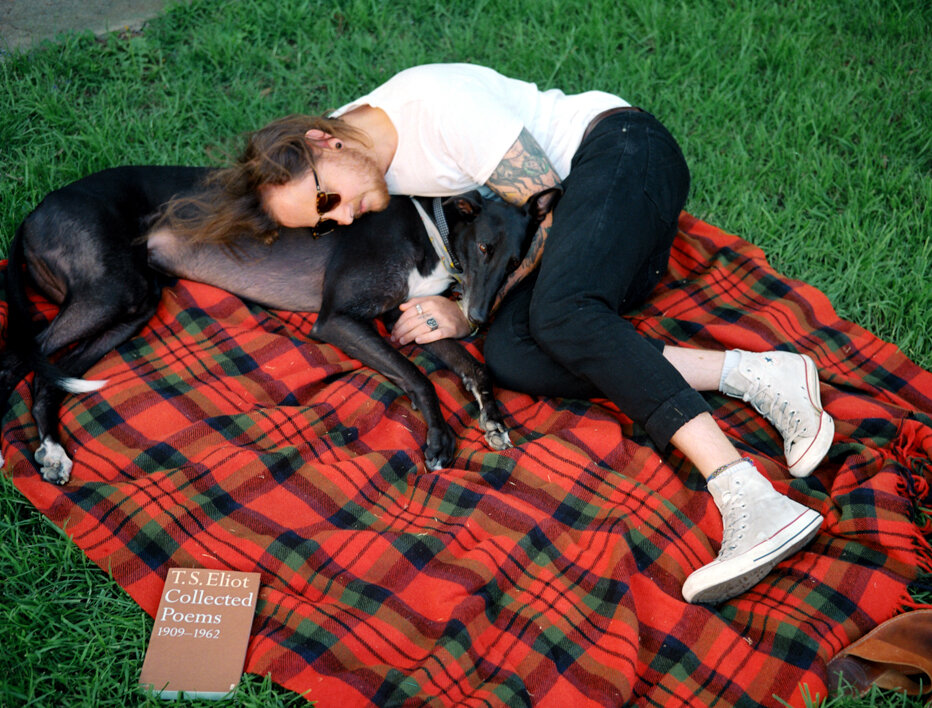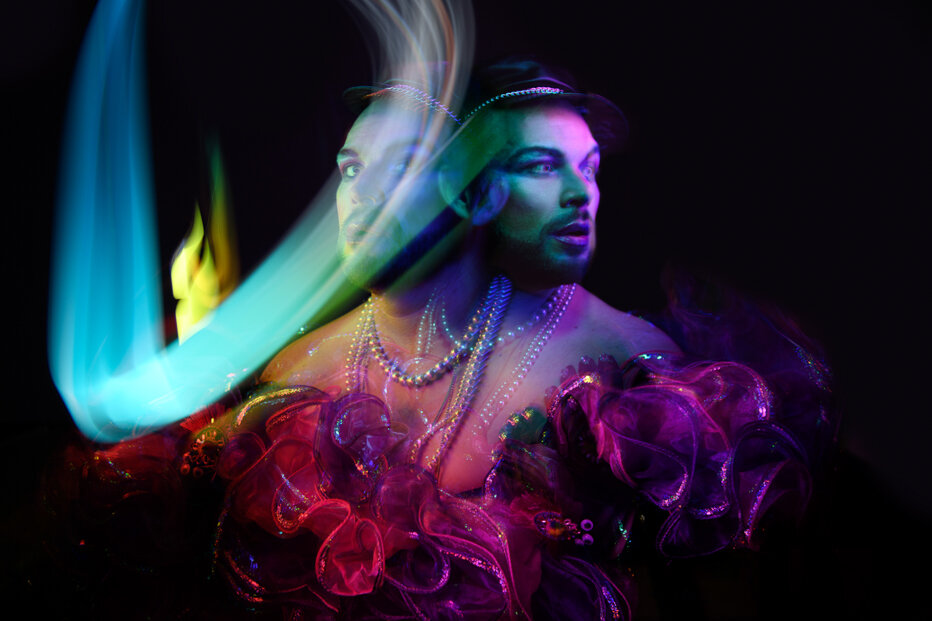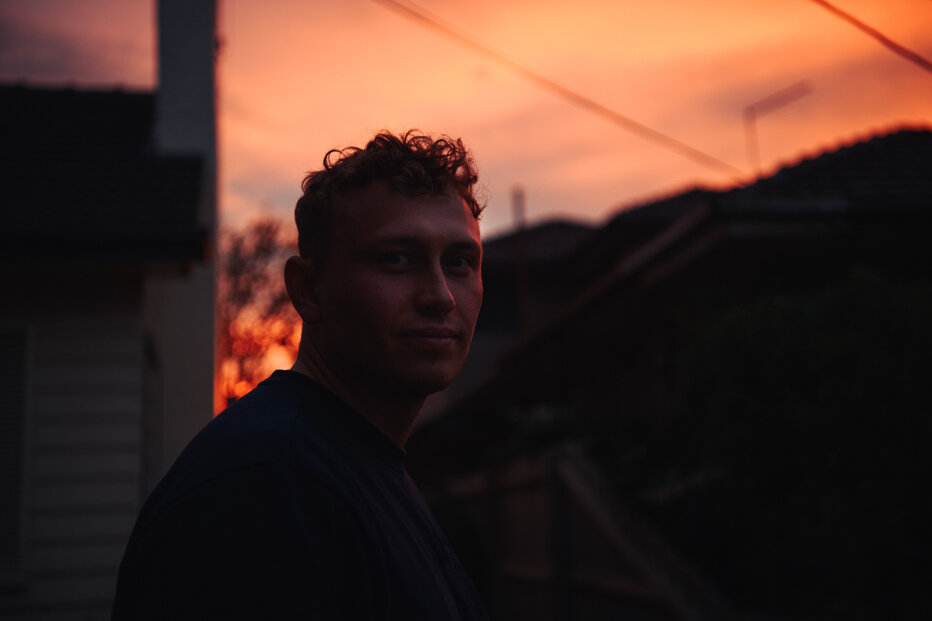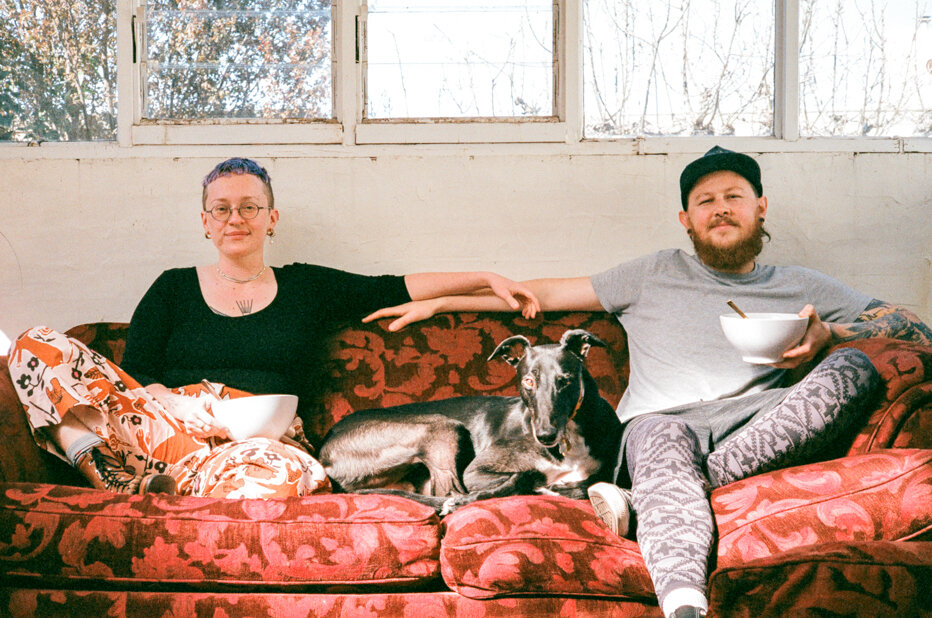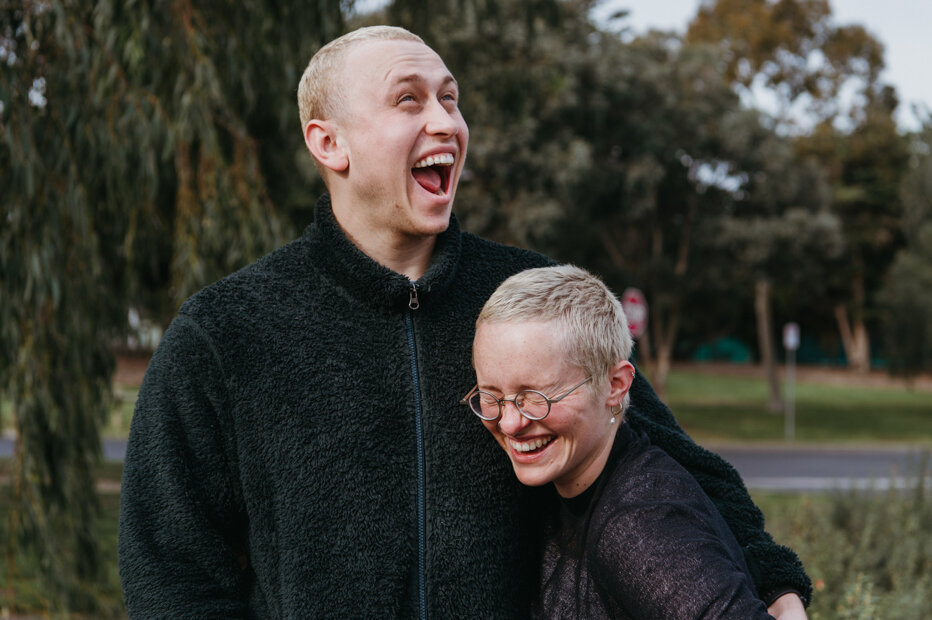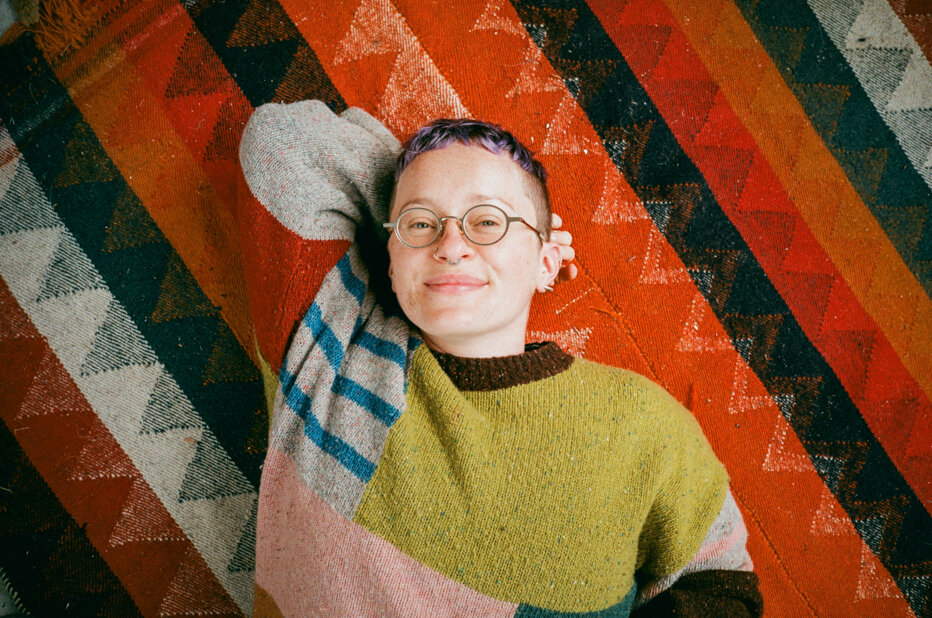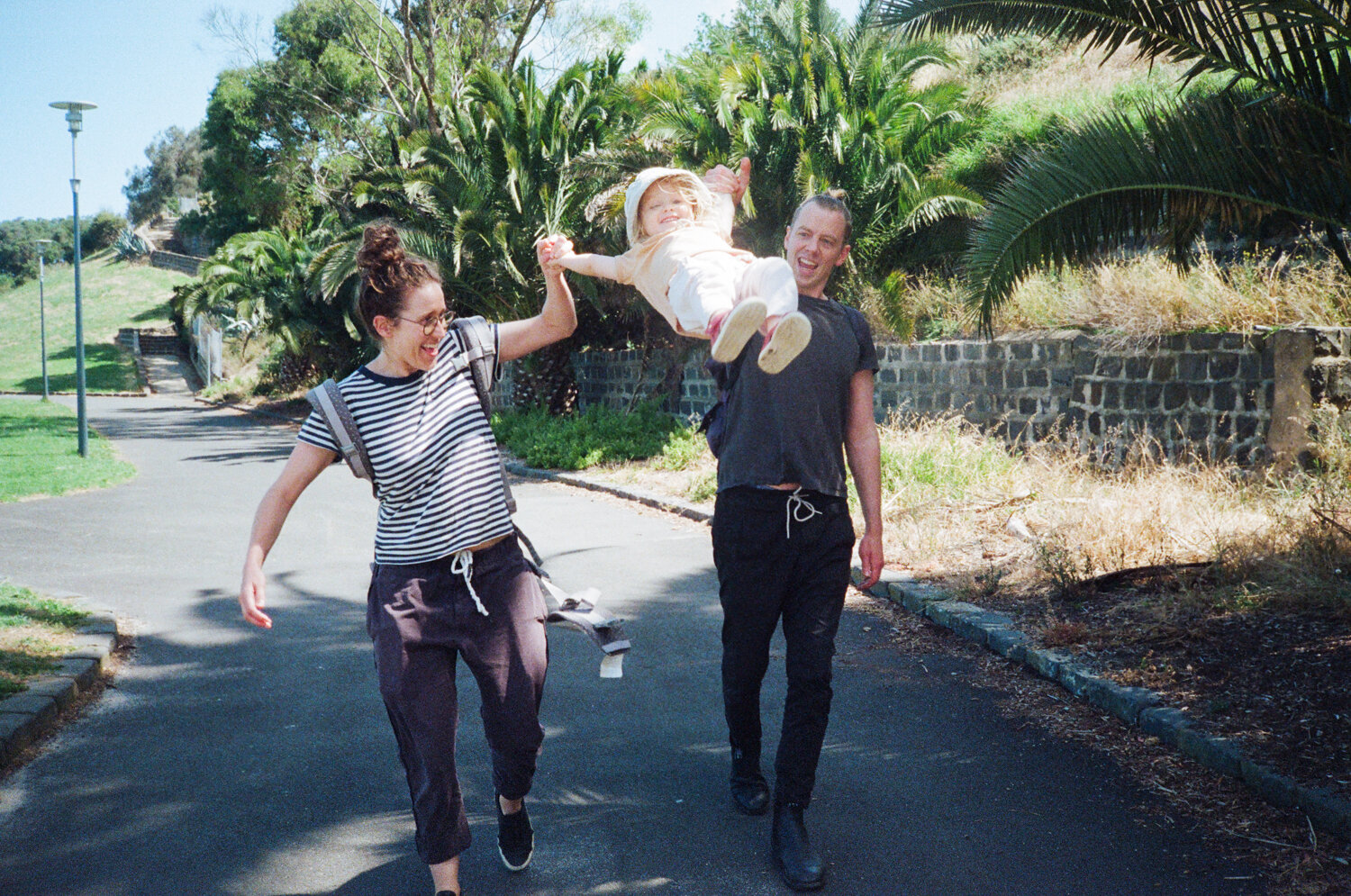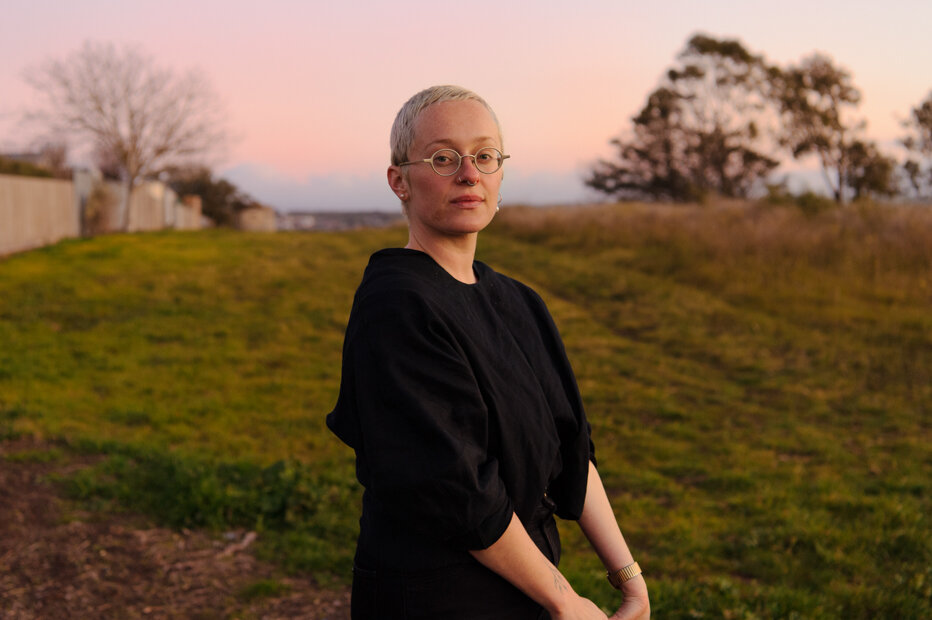2020
Countries visited: none
States visited: one
Plane flights: two
Most-liked photo on social media: this self portrait.
Family members who died: one
Family members diagnosed with cancer: one
Family members diagnosed with Covid: one
Migraines: two
Times I bit down so hard in my sleep that I couldn’t chew for a week: two
Times I cried so hard I felt as though some great force was passing through my body: five
Covid tests: four
Of which, negative: four
Most-played album: Dyson Stringer Cloher – Self Titled and ‘Indie Kicks 170 BPM Running’ by djnikozz on Spotify.
Most played song: ‘Can’t Take Back’ by Dyson Stringer Cloher.
Song I most often had stuck in my head: ‘Motion Sickness’ by Phoebe Bridgers.
Number of books read: 42
Of which, the best: ‘In the Dream House’ by Carmen Maria Machado.
Number of books written: one
Dungeons and Dragons characters played: four
Favourite things I made: an essay about my mother dying and an opinion piece for the Age that was never published.
Best decision: having mum’s funeral at home.
Best date: a series of Friday nights in the deep winter, drinking wine in front of the fire with Mike, surrounded by candle light.
Days on which I wanted to have children: sixty-three
Longest daily meditation streak: 193 days
Best piece of practical knowledge gained: the bureaucracy involved in being the executor of a person’s estate is staggeringly huge, and takes months and months to resolve.
Moleskine notebooks filled: two
Major projects that were cancelled or rescheduled: four
International residencies cancelled forever: one
Amount earned in writing advances: eight thousand dollars
Shittiest day: some point in May, hunched on the living room floor, holding onto the world with my fingernails, so swamped with anxiety that Valium wouldn’t touch it.
Moments I felt so happy I could burst: whenever a seedling germinated, poking its head above the soil. Laughing with my brother. Seeing my dad after lockdown. Smiling at Mike with love, with great love.
Last year’s new year’s resolutions:
Welcome the unknown with open arms.
This year’s new year’s resolutions:
Find the still in the storm.
Defining word for 2021: grace
Moments that stand out:
We are surfing at Ocean Grove as the bushfires roll in. When we walked into the water, we could see the cliffs rolling off the sea, kilometres away. Every time I catch a wave, I look over at them as they slowly disappear into thick grey-red smoke whose taste we spit into the salt when we fall.
Mike and I are in the Bunnings carpark. I am so anxious I can’t see, doubled over with my hands on my knees. It feels like being high; a bad trip, reality blurring at the edges. My body feels like it’s reacting to something that hasn’t yet happened. I walk with the same wobble as the trolley we wheel through the aisles.
I sit in a cafe in Geelong, drinking a long black and writing. Every day in January, I make myself write 1000 words, no matter what they are. Today, I am writing about Green Week, the beer festival at my university. I type frantically, as one thousand turns into two and three. The cafe begins to close around me. I back up the Scrivener file for the first time and email it to myself. An hour later, my laptop crashes. It won’t turn back on.
I am at the shopping centre with my mother. I pull a plastic item out of her boot and ask what it is. ‘It goes on the windscreen wiper,’ she says, ‘so the car wash doesn’t pull it off, so to speak.’ There is a pause that grows in density until we both burst into hysterical laughter.
Ben, Jalen and I drink coffee in the sun in Ben’s backyard, surrounded by a pile of books. We start talking, and the talk turns to action, and we’re racing around, making stacks, tearing out pages and sticking them to walls with water, asking ‘Could this work?’ It is a type of creative play I haven’t experienced in years, full of laughter and possibility.
For the first time in a decade, I am regularly driving on freeways. The fear rumbles inside me, but I move around it, skating into Werribee, where I turn off onto the back roads. Every time, I am scared and proud in equal measure.
Friends who are more than usually online start warning us about this new virus. It will be here soon, they say, and nobody is taking it seriously enough.
Mike and I arrive at the beach to discover that there are no waves. We head to Union Street instead, and drink wine and eat good cheese and talk and laugh. A poet careens into the bar, mad in the way that all poets are, and then we are all talking words and colour and music and coming up with ridiculous plans. Mike and I head home and drink whiskey, and I read poems to him and cry and we fuck and oh, I am happy.
Dad is admitted to hospital with a fever that won’t go down and trouble breathing. They tell him he has some sort of virus. They’re not sure which. They send him home the next day. A week later, we have breakfast in the city. He is sweating profusely. When he doesn’t take Panadol, he shakes. When he does, he sweats. I kiss his cheek, and it is cold and damp. I am afraid.
I spend three days in Bendigo working on a new project with Arena. We drive to a nearby forest. Nate sets up a speaker in a clearing and plays the sound of us all singing from the day before. Christian and I walk through the woods with our hands up over our mouths, crying with the shock of beauty, the way the sound endows the space with magic.
I have an artwork in a group show that opens at Deakin University in Geelong. We all stand around with champagne and sticks of celery, and talk in hushed voices about the global pandemic that has just been declared. The exhibition closes a few days after the opening. Nine months on, I still haven’t got my work back.
I strap on a pair of stripper shoes and stagger around the backyard, planning on recording a dumb bodybuilding video for the competition my D&D group are holding. When I come inside, I unbuckle the shoes in my office, and then my phone rings. It is my aunt. She is crying. Half an hour later, Mike and I are driving to Bentleigh, sitting in the terrible calm that comes with total disaster. I make a series of phone calls where I say ‘Mum is dead’, and then ‘I don’t know.’ The coroners drive a white refrigerated Toyota Hiace. I can’t help but wonder if there are more bodies in the back. It is late in the day. It’s probable.
Mike and I clean blood and vomit off the bottom of a sofa. We have to clean it three times before the smell goes. I sit on the floor with a bucket of bleach and a pair of rubber gloves and burst out laughing because I can’t think of anything else to do.
Mike shaves my head. It is elegant and clean. I think of the idea that hair holds memory, that we carry the past with us for as long as we hold off cutting it. I shuck myself like a new egg. I turn 32.
I drive around Melbourne, photographing year 12 students from a wealthy girls’ school as they pose on their doorsteps. Their mothers stand close behind me, calling the name of the inevitable poodle-cross dog their daughter is clutching. Every time, I swoon with anxiety at the feel of their breath as it passes me. I am too polite to tell them to step away. Between shots, I sit in my car and the world is white and cold and dead.
Luke proposes to Dani. He is so nervous he forgets his speech. We are delighted. They come to visit, and Luke helps me skateboard, holding my hand with such patience and care as I wobble around. He runs with me when I pick up speed, laughing and shouting encouragement. His sweet care fills me with such deep joy. He will be a wonderful parent, I think. Later, we sit at the piano. He plays, while I strum a guitar. We sing together, harmonising. I forget, sometimes, the ways in which we are similar.
My piece about mum’s death is published. Peter, the editor of the ABR, emails me a message from Helen Garner about the essay. It says: ‘Dear Peter, What a superb piece of writing (and thinking and feeling). I’m bowled over by it. She’s marvellous. xHG.’ I read it twice and then walk around the house making a sort of gurgling noise of astonishment.
Fleur and I speak on the phone and via letters and care packages to each other, across state lines, through love and loss and possibility.
Seamus comes to visit. He talks about using visualisation when meditating as a way of moving emotions on. I try it out. When I ask my chest whether the tension there wants to leave, I have a sudden, alarming vision of two bursts on purple fire on either side of my head, like flares or firecrackers. The lights fizz, and I start to cry in the hot, bright light. When they burn out, my anxiety is a little lighter.
I run along the path overlooking the freeway. When I am a few kilometres from home, an ache begins in my abdomen, like period pain, though I’m not at the right point in my cycle. A few minutes later, the pain is so bad that I can’t walk. I call Mike, and he finds me hunched over, sweating. I take a Naprogesic when I get home. The same thing happens a week later. My psychologist, exasperated, tells me to see my doctor. After an ultrasound, the doctor calls me. An ovarian cyst has burst. I’m not allowed to run for a month.
Jordan and Jessa come to stay. They bring Hartigan, Jessa’s dog. We go to a country off-lead park. Hartie hurtles across the park and goes plummeting into a dam. Jacko leaps in after him. He can’t swim. Mike and I break into a run at the same time, breathing steam into the freezing air. As we approach the dam, Jacko’s head pops up like a periscope, and then his whole body erupts into the air, sleek and wet and gangly. He turns circles on the grass, shaking his fur and leaping in delight.
The case numbers begin to go up again. The ABC coronavirus live blog becomes the only media I consume, watching updates roll in.
We pack up mum’s house in four days flat, loading our childhoods into a skip, driving it to op shops and giving it away to people on Gumtree. When it is done, I walk slowly through each room. I tell each one a memory that I have of it, and thank it. It is a good ritual. It feels complete. Afterwards, my psychologist asks if I feel mum’s presence around me. ‘Not at all,’ I said, ‘not even in her house. It didn’t feel remotely like she was lingering.’ I ask Mike about it. ‘No,’ he said. ‘There wasn’t even the absence of a presence.’
Aviva, the publisher I have been in talks with for some time, asks me to put together an official book pitch. I assemble January’s writing into themes, write up chapter outlines and collate existing pieces. I send it off with my heart in my mouth.
Dad calls. He has been working hard in the garden, moving gravel. He is exhausted. He is often exhausted, when he calls me. ‘Go to the doctor,’ I say. ‘Get a blood test.’ He waves me away with his voice.
Mike publishes his first graphic novel and sells nearly 100 copies in a few days. It is a glorious thing, to hold a real, tangible object made by someone whose talent I believe in so deeply.
Mike and I sit in front of the fire on a Friday night. The week before, I had been worried that I was pregnant when my period was late. Mike says, softly, ‘You know, we’ve never really talked about this properly. We always presumed we would never be able to afford children. But, you know, we could do it. We really could.’ A door I had long plastered over swings open and we stare through it together. I put my hands on my stomach and imagine it swelling with life. ‘Yes,’ I say, ‘yes.’
I dream of mum. She is alive. In the dream, I feel terribly tired. ‘This is so embarrassing,’ I say. ‘I’ve already told everyone you’re dead. How am I going to explain that you’re not?’
After a winter surf, I open the glovebox with ocean-cold fingers and find an email from University of Queensland Press, making an official offer for a book deal, a collection of essays. Mike dances in the winter sun as I stand, dripping, in my wetsuit and grin.
Ben, Jalen and I create a work for phone participants, called Dark Talk Time. We connect strangers and host them in ranging conversations. Every time, I am staggered by the vulnerability and care between the callers, the way they build a profound relationship that lasts as long as the phone call. They never find out each other’s names.
Mike, Chrissie, Rachel and I visit Dom and Meg in Daylesford. In the night, we sit around a campfire under wheeling stars, drinking wine and talking. I am so full up with the joy of human contact that I cannot speak. That night, we all hear footsteps in the AirBnb we’re staying in, doors opening. We all presume that one of us is walking the corridor in the dark. All four of us lie in our beds and hear nobody at all passing through.
I make a sound walk for the City of Moreland’s MoreArt public art program. The site is along the Upfield Train Line. The lockdown restrictions mean I can’t get there in person. My friend Andrea records her footsteps as she travels the route, filming what she can see. Together, we form one body, my head and her feet.
The world begins to open up once more, and the dream of children is swept away, like a vision on the wind. My certainty becomes unreal again. We agree to talk about it later. I read a Cheryl Strayed column, about the ghost ships that bear the lives that you do not choose. For a moment, I had stood so close that I could have stepped onto the other deck. Now, it passes away into fog. I can barely see it any more.
On the day mum’s house sells, we inspect a place in Geelong. It is perfect. Within a week, we have made an offer. I am used to the sneering dismissal of rental agents. The sales agent, conversely, showers us in champagne. When we get the keys, there is a fiddle leaf fig in the kitchen, a gift for us. We walk through the house with a stick of incense and introduce ourselves. We paint the walls and touch the door handles and whisper ‘It’s all ours.’ I hang a portrait of my mother as a young girl so that it’s visible from the front door, and I look at it and say ‘Thank you.’
Dad calls. He has been diagnosed with Myelodysplastic Syndrome, a form of blood cancer. His case isn’t terrible, though. They won’t treat it for the time being, just wait and see. It is the good news version of bad news. ‘I’m not going anywhere any time soon,’ he says.
It is pouring with rain. I am waiting for a takeaway coffee. A woman comes in, tilts her head towards the downpour and says, ‘Lovely weather for ducks.’ This tickles me so profoundly that I roar with laughter. Her eyes twinkle.
Luc, Jess and I gather around Maddie’s bath, and sing ‘Frère Jacques’ as a round. Her eyes go wide, looking between our faces as the notes slip together like warm light.
I am in Queenstown, with Ian Pidd and Martyn Coutts. The drive there is totally overwhelming after a year of being primarily indoors. I feel a sort of biblical awe at the extraordinary landscape, the mountains reaching out forever. Ian and I have a glass of wine in the locals’ bar. It tastes like it has been open for three years. It probably has. We sniff it and wince at each other, trying not to laugh. Later, tipsy, we walk with Martyn up to the lookout at the top of the town in drizzling rain, and stare out at the lights fading into darkness. It is beautiful.
I stand in the kitchen of the house that we own, seasoning dinner with my new, expensive pepper grinder. Something about the moment coalesces a year of guilt and gratitude and feeling, and I sit on the sofa and bawl and mumble some garbled words about how lucky we are, and what a terrible price we paid, and how strange it is to feel happy and horrified at the same time. It is too much good fortune. It is overwhelming. Mike, as ever, is calm and kind and gracious. He holds me and I am safe.
*
S x
